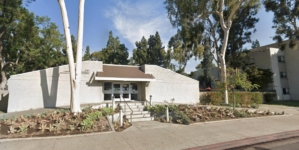-
Police investigating death of ‘full-term infant’ found near USC campus - 21 mins ago
-
Two Earthquakes Strike the Coast of Oregon Today: What to Know - 23 mins ago
-
Nvidia becomes the world’s first $5 trillion company, buoyed by AI boom - 25 mins ago
-
New Study Proposes Advanced Air Quality Assessment to Protect Public Health - 35 mins ago
-
Trey Yesavage’s Unusual Arm Angle Has Given Blue Jays Rookie An Advantage - 46 mins ago
-
World used record amount of fossil fuels last year, scientists say - about 1 hour ago
-
China Tries To Cover Up Toxic Mining Disaster: WSJ - about 1 hour ago
-
Stray Cats cancel fall tour due to Brian Setzer’s ‘serious illness’ - about 1 hour ago
-
Must Watch: Recirquel’s Walk My World Brings to Budapest an Immersive Circus Experience - about 1 hour ago
-
2025 NFL Week 9 Buzz: Bears Add DB Who Had 6 INTs Last Season; Vikings Add QB - about 1 hour ago
With L.A. mayor focused on trash, her top sanitation official departs
With the 2028 Olympic Games less than three years away, Mayor Karen Bass is showing a newfound interest in one of L.A.’s less flattering qualities: its trash-strewn streets.
In April, Bass announced the launch of Shine L.A., a beautification program that sends ordinary Angelenos out with shovels, gloves and trash bags to remove detritus from streets and sidewalks.
Officials are also scrambling to comply with a June 2026 legal deadline for removing 9,800 homeless encampments — tents, makeshift shelters and even RVs. And they’re working to divert three-fourths of the city’s food scraps and other organic waste away from landfills, as required under state law.
Now, the Bureau of Sanitation faces the prospect of more disruption, with its top executive stepping down after four and a half years.
Barbara Romero, who was appointed in 2021 by then-Mayor Eric Garcetti, told sanitation employees in an email on Monday that she will leave at the end of the year. She did not say what prompted her departure or whether she has another job lined up.
Romero did not respond to requests for comment. A Bass spokesperson declined to comment on the reason for the exit, referring The Times to Romero’s email.
“Mayor Bass thanks her for her many years of service and significant contributions to the people of Los Angeles,” said the spokesperson, Clara Karger.
Bruce Reznik, executive director of the environmental group Los Angeles Waterkeeper, said he is “frustrated and angry” over the pending departure — and is convinced that Romero is being pushed out by the mayor.
Reznik described Romero as a crucial voice at City Hall on environmental issues, such as the effort to build new wastewater recycling facilities. Romero also secured new funding to pay for repairs to the city’s aging sewer system, which will in turn avert future sewage spills, he said.
“She genuinely cares about these issues,” Reznik said. “She will engage communities, even when it’s uncomfortable.”
Romero’s departure comes at a crucial time for her agency — one of the city’s largest, with well over 3,000 employees and a budget of more than $400 million. Since Bass took office in December 2022, the agency has been working to bring in more money to cover the cost of trash pickup and sewer system upgrades.
This month, the City Council hiked trash removal fees to nearly $56 per month, up from $36.32 for single-family homes and duplexes and $24.33 for three- and four-unit apartment properties. The increase, which is expected to generate $200 million per year for the city, will be followed by several more fee hikes through 2029.
The department is also in the middle of its once-a-decade selection of private companies to carry out RecycLA, the commercial trash program that serves L.A. businesses and apartment buildings with five or more units.
Then there’s the basic issue of trash, which ranges from discarded fast food wrappers lining gutters to illegal dumping problems in Watts, Wilmington and other neighborhoods. International visitors to L.A. — first for next year’s World Cup, then the Olympic and Paralympic Games in 2028 — will have a close-up view of some residents’ slovenly ways.
Bass has sought to avert that scenario by creating Shine L.A., which has marshaled thousands of Angelenos to participate in monthly cleanups and tree plantings in such areas as downtown, Hollywood and the San Fernando Valley. In her most recent State of the City address, Bass said the initiative would restore local pride in the city.
“It’s about choosing to believe in our city again, and proving it with action,” she said. “Block by block, we will come together to be stronger, more unified than ever before. And that matters, especially in a world that feels more divided with each passing day.”
Chatsworth resident Jill Mather, who founded the group Volunteers Cleaning Communities, said she has already participated in Bass’ program. Still, she warned it will do little to address the parts of the city that have been hit hard by illegal dumping or others that have long-term homeless encampments.
“There are serious areas that need serious cleanup, and once a month in one area is not going to do it,” said Mather, whose members fan out across the Valley each day to pick up trash.
Mather said the city’s homelessness crisis is deeply intertwined with its trash problem, with sanitation crews facing limits on the removal of objects that might be someone’s property. Beyond that, Mather said, the sanitation bureau lacks the resources to gain control over the volume of refuse that’s discarded on a daily basis.
Estela Lopez, executive director of the Downtown Industrial District Business Improvement District, said her organization regularly sends the city photos and videos of trucks and other vehicles — with license plates clearly visible — dumping garbage in the eastern half of downtown.
Those perpetrators have treated the neighborhood like an “open-air landfill,” she said.
“We’ve seen everything from rotting produce and other food to refrigerators, couches, green waste, flowers, tires and construction debris,” Lopez said. “It’s the extent of it, the amount of it, and the fact that no one seems to have a solution to it.”
Lopez said she believes that downtown’s trash problem has gotten worse since the city created RecycLA a decade ago. That trash franchise program was so expensive for customers, she said, that some businesses scaled back pickup service or dropped it entirely.
“The city shot itself in the foot,” she said.
Romero, in her letter to her staff, pointed to her agency’s many accomplishments. Since she took the helm, she said, the bureau succeeded in increasing sewer fees for the first time in a decade, putting them on track to double by July 2028.
Romero championed the construction of a water purification facility that is expected to recharge the San Fernando Valley groundwater aquifer and provide drinking water for 500,000 people. She also pushed for a comprehensive strategy for reducing citywide use of plastics.
Lisa Gritzner, chief executive of the consulting firm LG Strategies, said Romero has been “very accessible” at City Hall, jumping on problems that go far beyond trash pickup. When a multistory, multi-tower affordable-housing project faced a tight deadline to secure a wastewater permit in Skid Row, Romero moved quickly to address the situation, Gritzner said.
“She was very good at helping to navigate the red tape, so we could get the project open,” said Gritzner, who represented one of the project’s developers.
City Councilmember Hugo Soto-Martínez said he feels good about the city’s handling of trash — at least in his district, which stretches from Echo Park and Historic Filipinotown to Hollywood and Atwater Village.
“I feel like our district does a good job of addressing 311 requests, illegal dumping, the trash,” he said. “We have a very nimble and efficient team.”
Soto-Martínez said he’s not too worried about Romero’s departure, noting that the top managers of city agencies “change all the time.”
“We have a lot of talented people in the city,” he said. “Losing one person doesn’t mean the city falls apart, whether it’s a council member or a general manager.”
Source link































